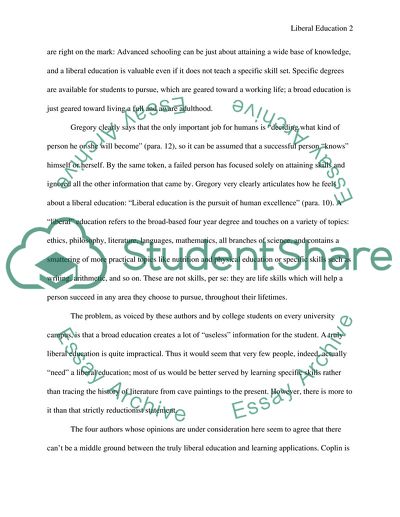Cite this document
(Who, if Anyone, Needs to Have a Liberal Education Assignment, n.d.)
Who, if Anyone, Needs to Have a Liberal Education Assignment. Retrieved from https://studentshare.org/education/1727088-5-6-page-multiple-source-paper
Who, if Anyone, Needs to Have a Liberal Education Assignment. Retrieved from https://studentshare.org/education/1727088-5-6-page-multiple-source-paper
(Who, If Anyone, Needs to Have a Liberal Education Assignment)
Who, If Anyone, Needs to Have a Liberal Education Assignment. https://studentshare.org/education/1727088-5-6-page-multiple-source-paper.
Who, If Anyone, Needs to Have a Liberal Education Assignment. https://studentshare.org/education/1727088-5-6-page-multiple-source-paper.
“Who, If Anyone, Needs to Have a Liberal Education Assignment”, n.d. https://studentshare.org/education/1727088-5-6-page-multiple-source-paper.


